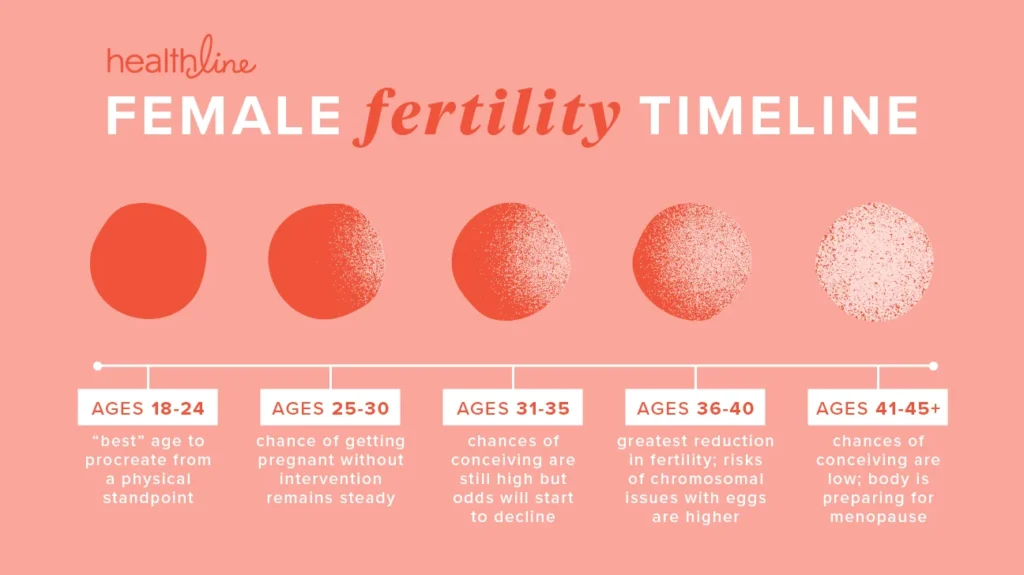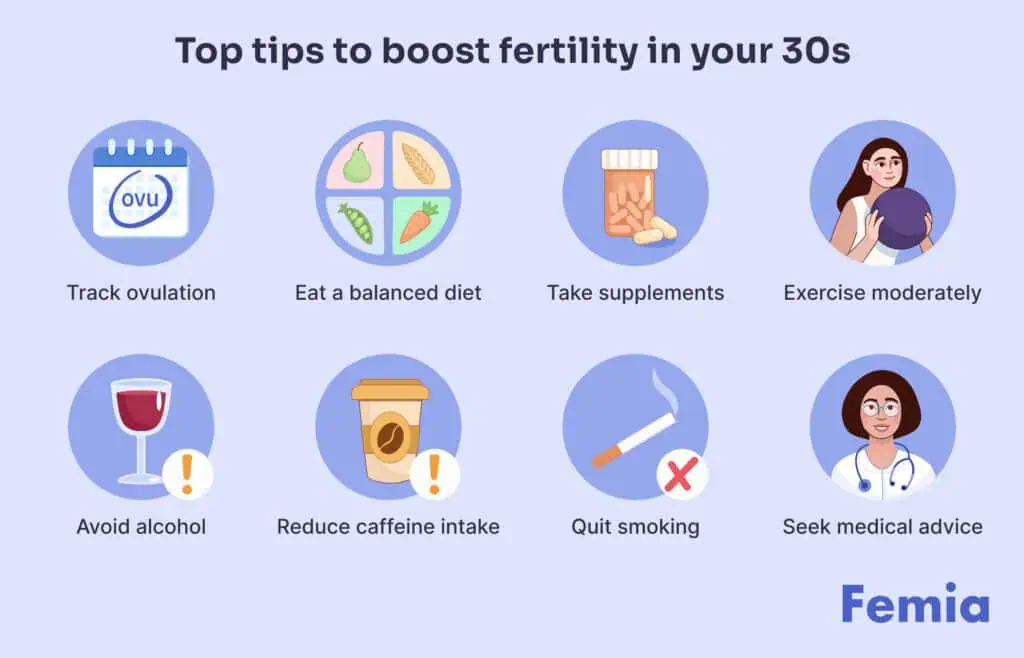Table of Contents
Thinking about trying to conceive after 30? You’re not alone—and it’s more common than ever. While it’s true that female fertility after 30 begins to shift, it doesn’t mean your chances of having a baby suddenly vanish. In fact, with the right information, timing, and support, many women successfully conceive in their 30s. This article gives clear, friendly, and helpful answers to women who are trying to get pregnant after 30, without overwhelming them with medical jargon.
Does Fertility Really Decline After 30?
Yes, but not overnight. Fertility decline after 30 is gradual. Women are born with all the eggs they’ll ever have, and over time, both the quantity and quality of eggs decrease. That said, at the age of 30, getting pregnant is still very possible. Most women in their early 30s have a good chance of conceiving naturally.

What Are the Chances of Getting Conceived After 30?
Statistically, women’s chances of getting pregnant after 30 years of age are still strong. In your early 30s, your monthly chance of getting pregnant is about 15–20%. That number does decline as you approach your late 30s, but it’s not an immediate drop-off.
Many women ask, “After 30, can I get pregnant without issues?” And the answer is yes, though it may take a bit longer depending on your individual health and lifestyle.
Why It Can Be Harder to Get Pregnant After 30
One reason it may be harder to get pregnant after 30 is due to hormonal changes and a lower egg reserve. Conditions like fibroids, endometriosis, or irregular ovulation can also affect your chances of conceiving after 30. It doesn’t mean it’s not possible—just that you may need more awareness and planning.
Getting Pregnant After 30: Tips That Help

Here are a few realistic, science-backed tips for getting pregnant in your 30s:
- Track your ovulation: Timing is everything. Use apps or ovulation kits to understand your cycle better.
- Have regular, unprotected sex: Especially during your fertile window.
- Prioritize health: Eat well, get enough sleep, and manage stress. These all support hormonal balance.
- Get checked early: If you’re trying to conceive after 30 and it’s been 6 months without success, talk to a fertility specialist sooner rather than later.
- Know your family history: Some conditions affecting fertility can be hereditary.
These getting pregnant tips after 30 can make a real difference, especially when paired with regular check-ups and healthy lifestyle choices.
Your Takeaway
Trying to conceive after 30 can feel emotional and sometimes overwhelming, but knowledge is power. Whether you’re 30, 33, or 39, the chance of getting pregnant after 30 is still very real. Just be proactive, stay positive, and don’t be afraid to ask for support.
Your 30s can absolutely be a great time to grow your family—just with a little more intention.
For more related articles, Click here

